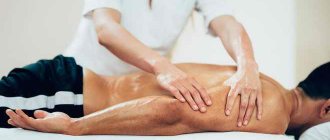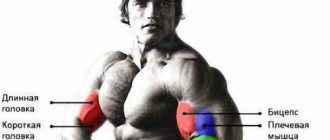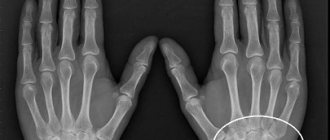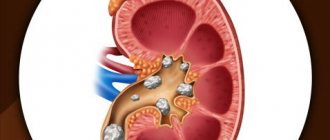Do steroids cause hair loss?
The short answer is yes, they can. But this is not a simple yes or no answer. There are many factors that determine whether you will lose your hair if you take steroids.
Firstly, genetics.
Currently, the best theory for androgenetic alopecia (i.e. male pattern hair loss) is that the underlying cause is the hormone dihydrotestosterone (DHT). This hormone binds to hair follicle receptors. Over time, this causes it to shrink. Eventually, it becomes so small that it stops producing hair. But it's not that simple, and you can't just equate DHT and hair loss.
Genetics also determine how susceptible hair follicles are to the effects of DHT. Some (lucky!) people have hair that is very resistant to this hair-damaging hormone. In other words, even if they have high levels of the hormone dihydrotestosterone, they will not lose their hair.
For example, look at the famous bodybuilder Lou Ferrigno, he shows no signs of hair loss from taking steroids.
Left: Photo of Lou Ferrigno taken during his comeback to bodybuilding in the early '90s. Right: Photo of him in 2016 (age 64).
Throughout his time in bodybuilding, he has probably taken almost every type of steroid - but he still has a great Norwood 1 hairline, even at 64 years old! Even for a person who has never taken anabolic steroids, this would be an excellent result. But Lou's hair was exposed to much more hair loss-causing androgens due to her long period of taking steroids. Despite this, he still has a full head of hair. It turns out that Lou Ferrigno has hair that is genetically resistant to androgenetic alopecia.
Secondly, steroids.
But unless you're lucky enough to have hair genetics like Lou Ferrigno, environmental factors—in this case, steroids—can cause you to lose your hair faster than normal.
Steroids mimic the effects of the hormone testosterone. In itself, this is not particularly harmful to hair. However, the enzyme 5-alpha reductase binds to testosterone and converts it to DHT - and this causes hair damage. And since some steroids are very similar in structure to testosterone, they too can be converted to DHT by 5-alpha reductase.
Testosterone and Dianabol steroid:
Many steroids also require testosterone injections along with it. This extra testosterone can also be converted to DHT. Thus, taking steroids can increase DHT levels. And if you have hair that is genetically susceptible to hair loss, then more dihydrotestosterone means more hair loss.
Reduced DHT levels when taking steroids
There are prescription medications that reduce 5-alpha reductase and therefore DHT levels.
Finasteride (brand name Propecia) is available by prescription to treat hair loss. Research shows that it reduces DHT levels by about 70%.
Dutasteride (brand name Avodart) has been shown to reduce DHT levels even further—by about 90%. But it is prescribed only for the treatment of benign prostatic hyperplasia, and not for hair loss.
A very important point: Systemic 5-alpha reductase inhibitors may actually worsen hair loss when used in combination with certain anabolic steroids such as Deca Durabolin. Other steroids, such as equipoise, are not converted to DHT via 5-alpha reductase, so treatment with finasteride and dutasteride will not have an effect.
An alternative antiandrogen for hair is the nonsteroidal antiandrogen RU58841. Unlike finasteride and dutasteride, it is applied topically. And there is compelling clinical evidence suggesting that the antiandrogen RU58841 may indeed reduce the effects of DHT. Unfortunately, it is not clinically approved for medical use. As such, RU58841 is classified as a research chemical and is not intended for use in humans.
Photos and videos of side effects
Below we provide photos and videos of some of the side effects that occur when using steroids. Information from the website of the American Anti-Doping Agency (www.usada.org).
https://youtu.be/-j0pwLOi8mY
Acne (“pimples”) Baldness in men
https://youtu.be/zW4WB-9uToM
Breast growth in men Baldness in women
https://youtu.be/UBKcuqOt3UU
Stunted growth in adolescents Coarsening of facial features and growth of facial hair in women
We recommend : Diuretics in bodybuilding: types and mechanism of action
1 Cardiovascular side effects of anabolic steroid use
Over the course of many decades of the history of the use of doping (mainly steroids), scientists and doctors have recorded a variety of side effects of steroids on the cardiovascular system of athletes:
- cardiomyopathy;
- myocardial infarction;
- strokes;
- vascular obstruction;
- blood clotting disorder.
Recent major scientific reviews have compiled all of these effects, and some have been confirmed by scientific experiments. We will present the most important and reliable of them.
One recent study of the cadavers of 87 men who used steroids found that all of them had heart masses that were significantly greater than those of the general population , even after adjusting for weight and age.
Another study of 4 cadavers of steroid users after death due to cardiac failure showed ventricular hypertrophy (increase in size) associated not with an increase in heart muscle mass, but with fibrosis (an overgrowth of connective tissue that usually results from chronic inflammation)5.
Athletes on steroids have a larger heart mass, but not due to an increase in the mass of the heart muscle, but due to the proliferation of connective tissue
Studies of the electrical conductivity of the heart muscle in athletes on steroids have shown a decrease in the electrical stability of the heart , abnormal functioning of the cardiac tone regulation system, and impaired repolarization of the ventricles of the heart; the latter finding was also demonstrated in rats fed steroids.
And, perhaps, the most important and serious side effect: numerous studies using different methods have shown that athletes (both amateurs and professionals) “on steroids” develop cardiomyopathy - structural and functional changes in the heart muscle 6.
Another study showed decreased aortic elasticity in steroid users. Such changes can be very serious, but may be reversible (at least partially) after stopping the use of steroids. However, one possible reason for the loss of elasticity may be an increase in the content of connective tissue as a result of cell damage from steroids. In this case, the process is most likely irreversible 7.
One of the most serious and dangerous consequences of steroid use is cardiomyopathy - structural and functional changes in the heart muscle.
In addition to the direct effect on the heart muscle, steroids can cause dyslipidemia, i.e. violation of the ratio of “bad” high-density cholesterol and “good” low-density cholesterol. This is fraught with an increased risk of developing atherosclerosis (“blockage” of blood vessels). The effect is especially characteristic of oral steroids 8.
One study of 14 professional weightlifters who had been using steroids for a long time found significantly higher levels of calcium in the coronary arteries (those vessels that supply blood to the heart itself) than normal. Atherosclerosis of the coronary vessels is the likely cause of many known cases of heart attacks and strokes in young men who used steroids 9.
“Blockage” of the vessels that feed the heart itself is the most likely cause of the majority of deaths of young people “on steroids” due to heart attacks and strokes. Especially typical for oral steroids
We recommend : Side effects of insulin in sports: overdose, coma, death
If you think what we do is important, support our project!
YES!
2 Steroids and potency: impact on sexual function of men and women
The issue of the influence of anabolic steroids on potency is discussed in detail in the materials:
- Steroids and potency in men: impact on conception, why you shouldn’t take a course of steroids, the likelihood of testicular and prostate cancer. Scientific research.
- Steroids and potency in women: impact on conception, regularity of menstruation, likelihood of breast cancer. Scientific research.
3 Mental Side Effects of Steroid Use
Modern science mainly accumulates material on the mental (and other) side effects of steroid use, sometimes conducting its own experiments that are not credible due to the sensitivity of the topic. The main sources of evidence of the harm of steroids are:
- interviews with steroid users, including those who simultaneously dabble in drugs;
- comparing the mental state of athletes “on steroids” with normal athletes;
- long-term observations of the same athletes and comparison of mental state during intervals of steroid use and “rest” from them.
The most common mental effects of taking steroids are:
- hypomania or mania;
- irritability;
- aggressiveness;
- excessive self-confidence;
- hyperactivity;
- reckless behavior, and sometimes loss of sense of reality (behavior inappropriate to the environment);
- symptoms of acute depression during steroid withdrawal (depressed mood, loss of interest in normal activities, increased sleepiness, loss of appetite, loss of libido and, in extreme cases, suicidal tendencies).
The mental effects listed above manifest themselves individually; Most “steroid addicts” experience only some of them, and only a very small part exhibit serious degrees of deviations.
Behavioral abnormalities are common in those using large doses of steroids , equivalent to >1000 mg testosterone per week 10.
Mental abnormalities are common in athletes who use large doses of steroids, equivalent to >1000 mg of testosterone per week
It is impossible to predict what specific mental consequences the use of steroids will lead to in a particular person. Moreover, scientists talk about the existence of individual sensitivity to both excess testosterone in the blood and refusal to use it .
Some observations of athletes “on steroids” have noted very aggressive or violent behavior in those who showed no signs of anything similar before starting the steroid course. For example: committing murder or attempted murder by previously healthy people or displaying other aggressive behavior that is uncharacteristic for a person.
All the above facts are collected - the result of observations “in the field” of real athletes using steroids.
Rigorous scientific experiments have also been conducted to study the effects of steroid use on people's mental states. However, in almost all of them (probably for safety reasons for the experimental subjects), the maximum doses of testosterone did not exceed 300 mg per week - this is significantly less than those usually used by athletes on steroid cycles , which are about 500 mg per week, and often more than 1000 mg per week. Therefore, the results of such studies do not deserve attention or trust.
The results of scientific studies on the effects of steroid use on mental health are not credible, since all of them use gentle doses of steroids, far from what athletes actually take. Only observations of athletes in the “field” are indicative.
Several experiments examined psychiatric symptoms in patients who received 500 mg of testosterone per week. Of the 109 men, 5 (4.6%) demonstrated hypomania or mania syndromes. Almost all men showed an increase in aggressiveness in response to provocations 11.
Deviations in behavior when using large doses of steroids are explained mainly by their effect on certain parts of the brain
The same thing is observed in animals (rats, monkeys): steroids lead to defensive and offensive aggression, dominant behavior, anxiety, sensitivity to other illegal drugs, drugs, in particular opioids.
We recommend : Growth hormone: reviews from athletes, coaches, experts
4 Development of dependencies
Approximately 30% of steroid users become dependent on them 2,4.
About 30 out of 100 people who use steroids become dependent
Unlike most other drugs, which are addictive but initially produce a “high,” there is no intoxicating effect when using steroids; The main purpose for which they are taken is a delayed reward in the form of increased muscle mass and decreased body fat.
Read us on the networks
Despite this, steroid addiction can become a chronic and dangerous disorder . There are three mechanisms for its development 12:
- “I want to look like He/She”
Many amateur athletes start taking steroids because they want to quickly transform, gain muscle mass and lose fat. It all probably starts with the desire to become like someone (for various reasons: likes, girls, etc.) against the background of a strong discrepancy between the “current self” and the “desired self” 13.
This condition is very often the reason for starting the use of steroids. Further, as they use it, people with such problems often fall into extreme concern and worry that if they stop using steroids, the muscle mass will “deflate” and everything will return to its place 12. This is how addiction has formed.
- Suppression of natural testosterone synthesis
These are factors in the influence of steroids on the nervous system and the thyroid gland. The use of steroids leads to the suppression of the mechanisms of natural testosterone production, which involves certain parts of the brain and testicles. This can lead to a significant decrease in its natural synthesis in the body after finishing a course of steroids 14.
To avoid this, steroid athletes use various methods to complete their steroid cycle. In particular, they take clomiphene or the human growth hormone gonadotropin at the end of a course of steroids.
But, even with these methods that do work, suppression of natural testosterone production is observed for several weeks or months after stopping steroid use 15.
Associated symptoms of fatigue, loss of libido and depression may prompt some users to quickly resume steroid use to get rid of them.
- Steroids are drugs...
Some animal studies suggest that steroids may stimulate certain parts of the brain that control pleasure. This produces an effect similar to that which occurs when using drugs 16.
Recommended : How natural is modern natural bodybuilding?
5 Neurotoxicity
Scientific research suggests that when testosterone levels are higher than natural, it leads to the death of certain types of cells, in particular, but not only neuronal cells in the brain 17.
This has been confirmed in both animal and animal studies, in one of which, after administering steroids to rats, there was a clear loss of spatial memory. Overall, scientific evidence strongly supports the risk of developing permanent mental impairment in long-term steroid users 18.
Scientific evidence suggests that long-term use of steroids may cause irreversible mental impairment
In a human study of 31 weightlifters on steroids and 13 not on steroids, researchers found significant visual and spatial memory deficits in those on steroids; and the extent of this deficiency is significantly related to the total duration of steroid use throughout life 3.
Thus, the toxicity of steroids to brain cells is obvious and requires further study.
We recommend : Preparations for drying the body: a confession from a professional bodybuilder about how the pros dry themselves
6 Steroids and the thyroid gland
As we have already said, steroids clearly suppress thyroid function 19. At the end of a long course of steroids (several months or more), thyroid function may remain suppressed for several months or even 20 years; In some people, normal natural testosterone levels are never restored .
The use of steroids leads to suppression of thyroid function, which does not recover for months, years, and in some cases, never. This leads to low natural testosterone levels
In addition, steroids can have a toxic effect on the testes, sometimes irreversible 21. As a result, the production of a number of hormones (except testosterone) decreases or completely stops.
This condition is correctable, and several studies report successful treatment with clomiphene, a human growth hormone gonadotropin. However, there are cases where these methods did not work.
In general, to date, there are no systematic studies in the treatment of hormonal dysfunction due to steroid use. Suppression of natural hormone production when using steroids can lead to disruption of the function of sperm production by the testes, infertility in men and women, and irregular menstruation in women.
We recommend : How to gain muscle mass? Beginner's Guide
7 Risk of infectious diseases with steroid use
In addition to the direct side effects of steroid use, steroid-using athletes are susceptible to infections associated with the use of contaminated needles, contaminated drugs manufactured on the black market, or others.
Although sharing injection needles is not common among modern athletes, a recent Internet survey found that 65 of 500 steroid users (13%) endorsed sharing injection needles , reusing needles, and sharing the same syringe with multiple doses of steroids for administration to several people.
Given that Internet users participating in surveys tend to be more educated and wealthier than the general population of athletes on steroids, the above figures are likely far from reality.
It is therefore not surprising that the scientific literature has documented various infectious complications from steroid use, including:
- blood-borne pathogens;
- HIV;
- hepatitis B and C;
- skin infections;
- soft tissue infections.
The main cause of all of them is the bacterium Staphylococcus aureus.
The first case of HIV infection in a steroid user was recorded almost 30 years ago, later in the United States and Europe.
Infections with hepatitis B and C are also common 22.
The greatest risk of transmission of HIV and other diseases among steroid users is associated with the sharing of injection needles. This in turn is explained by the great popularity among athletes of testosterone and nandrolone , which are administered intravenously.
The practice of sharing needles among athletes on steroids is common, which is a cause of infection with HIV, hepatitis B and C
However, unsafe needle use practices are only one possible risk factor for contracting HIV and other infectious diseases.
A study of homosexuals in London gyms found that homosexual athletes on steroids, as opposed to non-steroidal athletes, were significantly more likely to have unprotected anal sex with unknown partners 23.
Given that steroids are widely used among homosexuals, both illegally and as prescribed by doctors to treat HIV-related wasting syndrome, the likelihood of HIV spreading among them is high, both through needles and sexual intercourse.
Among steroid users, many have been incarcerated in prison, and evidence suggests an increased risk of hepatitis and HIV among prisoners,
And one last thing. Soft tissue infections and abscesses are more common in professional athletes who use steroids 24.
We recommend : Protein and alcohol: how does drinking beer affect muscle growth?
8 Effect of steroids on other organs and systems
- Blood
Steroid use increases hemoglobin (carries oxygen to cells) and red blood cell concentration in proportion to the dose. Steroids stimulate the production of red blood cells by increasing sensitivity to erythropoietin (a hormone secreted by the kidneys that regulates the rate of red blood cell production) 25.
- Muscles
Weightlifters and bodybuilders who use steroids may experience rhabdomyolysis 26, a condition in which damaged muscle fibers are rapidly destroyed, accompanied by muscle pain, weakness, vomiting and confusion; the urine is the color of tea and the heart rate is irregular.
This condition in turn can lead to increased urinary creatinine levels, decreased renal filtration rate, and sometimes the development of acute renal failure 27.
One recent study documented kidney problems (inflammation) in 10 athletes who frequently used steroids 28.
- Liver
Steroid use can sometimes lead to liver toxicity, with consequences such as Peliosis hepatis: the formation of cysts (cavities) in the liver filled with blood, as well as various types of liver cancer 29-30.
Almost all side effects associated with liver toxicity are caused by oral 17α-alkylated steroids 31.
Liver toxicity is most often caused by oral steroids
In general, the harm of steroids to the liver and the frequency of cases of intoxication are exaggerated.
We recommend : Is protein harmful to health? Scientific facts
- Tendons
Steroid use can lead to adverse musculoskeletal side effects, particularly tendon rupture .
Tendons often tear after finishing a course of steroids. This is explained by the fact that the muscle strength of hypertrophied muscles increases very quickly and the ligaments do not have time to strengthen, as well as the influence of steroids on the structure of the tendons themselves 32.
Steroids can negatively affect the immune system , lungs , as well as other organs and systems, causing excessive formation of “pimples” (acne). Science still has limited facts in these areas.
When using steroids and after completing the course, tendons may rupture, which do not have time to strengthen according to muscle strength
- Steroids and cancer
There is little evidence of a link between steroid use and cancer , with the exception of rare reports of liver, testicular and kidney cancer. There is no clear evidence today that steroid use causes prostate cancer.
There are only two known clinical cases of prostate cancer in bodybuilders, both recorded more than 20 years ago.
However, it is possible that when high doses of steroids are used during adolescence, genetic changes may occur that increase the likelihood of developing cancer (including prostate cancer) later in life.
There is no convincing evidence linking steroid use to cancer development.
Considering that we live in a time when those who once were pioneers at the beginning of the era of steroid use (1980s) are aging, very soon science and medicine will be able to provide more definitive answers to the question of the effect of steroids on prostate cancer and others. side effects.
We recommend : [Scientific facts] Clenbuterol for weight loss and “drying” the body: mechanism of action, risks, warnings
Worst Steroids That Cause Hair Loss
The following are popular steroids that are believed to be most likely to accelerate hair loss:
Anadrol (oxymetholone)
Anadrol is known to cause hair loss. It is very quickly metabolized into estrogen and DHT, accelerating hair loss at a rapid rate.
Dianabol (methandrostenolone)
Dianabol has an anabolic-androgenic ratio of 90-210: 40-60. In other words, it is more androgenic than anabolic. As such, it is very harmful to hair. And 5-alpha reductase inhibitors like finasteride and dutasteride won't do much to slow hair loss either.
Trenbolone
Trenbolone is another steroid that is very harmful to hair. It is actually a derivative of DHT. And 5-alpha reductase inhibitors will not help stop hair loss from Trenbolone.
Winstrol (stanozolol)
Winstrol is perhaps the worst steroid for hair. Like Trenbolone and Dianabol, even large doses of finasteride and dutasteride will not do much to help you maintain your hair while taking this steroid. In fact, it is so strong that even users who are not particularly susceptible to androgenetic alopecia report hair loss from Winstrol.
Baldness from steroids
The first results can be subjectively assessed after 2-3 months of using the drug. The obvious disadvantages of the drug are as follows: Steroid hormones There are a number of ways to use steroids to treat alopecia areata - from topical preparations such as steroid creams or lotions, to tablet forms and, most successfully, as steroid injections.
This treatment option is most often used for patients with small areas of hair loss and with long-term use has side effects, which, ironically, can also include premature baldness.
In addition, steroid injections can also be extremely uncomfortable and painful.
- Where is the normal food?
- If the hair is getting smaller Date of publication.
The safest steroids for hair
Like any drug, different steroids affect people differently. A steroid that causes hair loss in one person may not affect another. But the following steroids are generally considered the least dangerous for hair.
Anavar (oxandrolone)
Anavar is one of the least androgenic steroids with an anabolic-androgenic ratio of 322-640:24. It generally does not convert to estrogen or DHT.
But if taken in high enough doses (>100 mg), it can cause hair loss, although it is generally quite safe.
Deca-Durabolin (nandrolone)
Overall, Deca-Durabolin is quite safe for hair. But while taking this steroid, you should never take finasteride or dutasteride, as this will be worse than not taking them at all.
Oral Turinabol (4-Chlorohydromethyltestosterone)
Oral Turinabol is said to have an androgen rating of 0. In theory, this means that taking it will not cause hair loss at all. But like Anavar, it can cause hair loss if taken in large enough doses.
Overall, however, this is pretty much the safest steroid for hair.
Is it possible to take steroids and not lose your hair?
This depends, firstly, on how susceptible your hair is to androgens. This is something you can't control.
But there are things that are under your control, such as what steroids you take, the dosage, and the hair loss products you use. But the safest option if you're concerned about your hair is to not take steroids at all.
If your hair is sensitive to the effects of DHT, which minimizes it, it will fall out when exposed to enough androgens. And once hair loss has occurred, regaining the hair lost due to androgenetic alopecia will be much more difficult than preventing it.
The "safe" hair steroids described above are certainly less likely to cause hair loss. However, this is by no means a guarantee that you will keep your hair.
But if you are careful and take proper measures, you can reduce the risk of accelerated hair loss due to anabolic steroid use.
Men's and women's specific effects of anabolic steroids
It is a mistake to think that a headache pill only works for headaches. After it enters the stomach and is absorbed, the active substance is carried to every cell of the body by the circulatory system, including the brain.
Similarly, the increased level of testosterone in the body when using steroids has a total effect on the body: not only the muscles, but also the brain, heart, and other organs and systems are affected.
Hence a wide range of potential side effects: from cardiovascular to mental. The risk of which, which I think should already be clear, is proportional to the dosage and the time during which the body is under their influence.
Some physiological and psychological side effects of steroid use can potentially affect everyone who takes them, while others are specific to men and women. The list below is not exhaustive.
Male-specific side effects:
- breast growth (mammary glands);
- testicular shrinkage;
- impotence;
- decreased sperm production.
We recommend : 100 athletes told what it was like to take steroids...
Women-specific side effects:
- deepening of the voice;
- cessation of breast development;
- hair growth on the face, stomach and upper back;
- clitoral enlargement;
- menstrual irregularities.
The consequences of steroid use are typical for both men and women:
- acne or “pimples” (a lot);
- increased risk of tendon rupture due to the fact that the ligaments do not have time to acquire strength in accordance with muscle mass; very often tendon rupture occurs after finishing a course of steroids;
- baldness;
- liver dysfunction and the development of cancer;
- in the case of adolescents taking steroids, growth retardation (associated with the closure of the growth centers of long bones) and development (including sexual development), as well as the risk of future health problems;
- increased levels of “bad” cholesterol (low-density lipoproteins);
- reducing the level of “good” cholesterol (high-density lipoprotein);
- high blood pressure (hypertension);
- cardiovascular diseases;
- aggressive behavior, anger or violence;
- mental disorders such as depression;
- drug addiction;
- infections or diseases such as HIV or hepatitis from injecting drugs;
- increased aggressiveness and sexual desire, which can lead to abnormal sexual and criminal behavior;
- withdrawal from anabolic steroid use can be accompanied by depression and, in some cases, suicide.
We recommend : The most popular steroids: rating











